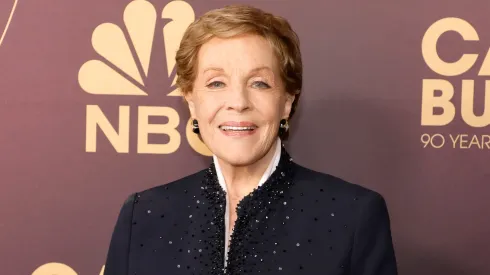The moment Julie Andrews first graced the silver screen was a defining event in cinematic history, establishing an immediate, almost impossible standard of grace and vocal talent. Her initial, indelible roles instantly rendered her a unique cultural touchstone, a rare star whose image was formed by perfection.
This level of immediate, global renown posed an enormous challenge: how to sustain a career defined by such early, luminous success. The answer lies in her quiet but deliberate evolution, transforming from a musical ingenue to a versatile character actress whose influence spans generations.
Her full body of work reveals a fascinating artistic journey, one that includes award-winning gender-bending comedy, sharp dramatic turns, and even the commanding voice of royal wisdom in modern fairytales. Marking her 90th birthday, the roles that follow chronicle the impressive range and enduring power of an actress who always chose artistic challenge over comfortable expectation.
Mary Poppins (1964)
The role that defined a career and earned Julie Andrews her Academy Award, establishing the archetype of the practical, magical nanny. Her performance was a masterclass in controlled grace, humor, and vocal purity. This film is the bedrock of her legacy, but its success created the very image she would spend decades expertly subverting in subsequent roles.
The Sound of Music (1965)
As Maria von Trapp, Andrews cemented her status as Hollywood’s premier musical star and the queen of cinematic wholesomeness. The global, enduring phenomenon of this film—where she portrayed the spirited, imperfect governess—became the high-water mark for musical cinema, forever linking her image with mountain landscapes and a determination to find joy amidst turmoil.
Victor/Victoria (1982)
This bold, award-winning turn was the crucial pivot in Andrews’ career, allowing her to shatter her wholesome public image. Playing a struggling singer who pretends to be a male female impersonator, she brilliantly navigated complex comedic timing and gender subversion. The role proved her immense capability as a sharp comedic actress entirely independent of her singing voice.
The Americanization of Emily (1964)
Released the same year as Mary Poppins, this dramatic black-and-white satire allowed Andrews to immediately showcase a darker, non-singing side. She played a war widow whose cynicism contrasted sharply with the cheerful characters she became famous for. It is a powerful example of her early commitment to taking challenging, nuanced dramatic roles.
The Princess Diaries (2001)
This film successfully reinvented Andrews for a new generation, trading the governess for the matriarch. As Queen Clarisse Renaldi, she brought a sense of regal authority and elegant comedy to the role, demonstrating her perfect transition into a beloved, modern cinematic figure whose wisdom anchored the Disney fantasy.
Thoroughly Modern Millie (1967)
This exuberant, flapper-era musical demonstrated a different facet of her musical talent. Andrews played a wide-eyed flapper trying to survive in 1920s New York, shedding the pastoral solemnity of her earlier roles for a funnier, faster-paced, and more screwball comedic energy. The film proved her versatility across varied musical styles.
Duet for One (1986)
A deeply serious and emotionally demanding dramatic role, Duet for One saw Andrews completely shed her musical identity. She played a world-famous violinist diagnosed with multiple sclerosis, delivering a raw, powerful performance that earned high critical praise and stands as a powerful argument for her range outside of light entertainment.
The Tamarind Seed (1974)
This post-Cold War spy thriller offered Andrews a rare turn as a dramatic lead in the realm of international espionage and political intrigue. Playing a British Home Office worker entangled with a Soviet agent, the role was a deliberate attempt to break away from her established persona, succeeding as a complex, non-singing dramatic effort.
Shrek (Voice of Queen Lillian)
Her work in the Shrek franchise marked her entry into modern animation, allowing her unique voice—the foundation of her career—to be used for comedic effect. As Queen Lillian, she brought a necessary regality and a dry wit to the chaotic, often irreverent fantasy series, influencing a new generation of blockbuster voice talent.
Despicable Me (Voice of Gru’s Mom)
This short, hilarious, and highly specific voice role further proved her comedic range. She portrayed the judgmental, slightly cruel mother of the super-villain Gru, delivering sharp lines with deadpan perfection. It was a brilliant, self-aware piece of casting that showcased her ability to be funny and cold using only her voice.
